10 Reasons Why the Industrial CNC Milling Machine is the Best Investment for Your Business
In today's fast-paced manufacturing landscape, companies are constantly seeking ways to enhance efficiency and reduce production costs. According to a recent report by MarketsandMarkets, the global CNC machine market is projected to reach $117.91 billion by 2027, driven by the growing demand for precision engineering and automation. Among the various innovations in this sector, the industrial CNC milling machine stands out as a key investment for businesses aiming to optimize their operations. With its ability to produce complex parts with high accuracy and speed, the industrial CNC milling machine not only reduces waste but also significantly shortens lead times. As industries shift toward more sophisticated manufacturing processes, understanding the compelling reasons for integrating this technology into your production line can be a game-changer for your business. In the following sections, we will delve into ten compelling reasons why the industrial CNC milling machine is the best investment your company can make.

Top Advantages of CNC Milling Machines in Modern Manufacturing Efficiency
 CNC milling machines have revolutionized modern manufacturing, offering unprecedented efficiency and precision. One of the most significant advantages is their ability to produce complex parts with minimal human intervention. By utilizing computer numerical control, these machines can operate continuously, executing intricate designs with a level of accuracy that manual methods simply cannot match. This feature not only saves time but also reduces material waste, which is crucial for maintaining a lean production process.
CNC milling machines have revolutionized modern manufacturing, offering unprecedented efficiency and precision. One of the most significant advantages is their ability to produce complex parts with minimal human intervention. By utilizing computer numerical control, these machines can operate continuously, executing intricate designs with a level of accuracy that manual methods simply cannot match. This feature not only saves time but also reduces material waste, which is crucial for maintaining a lean production process.
Furthermore, CNC milling machines enhance operational flexibility. With the ability to quickly switch between different projects, businesses can respond rapidly to changing market demands. Operators can program multiple designs into the system, allowing for batch production without the need for extensive setup changes. This adaptability leads to shorter lead times and improved productivity. As industries increasingly prioritize efficiency and customization, investing in a CNC milling machine positions businesses to thrive in a competitive landscape.
Cost Savings: How CNC Milling Reduces Labor and Production Costs
CNC milling machines have transformed the manufacturing landscape, particularly in terms of cost efficiency. One of the most significant advantages of adopting industrial CNC milling technology is the reduction in labor costs. Traditional milling requires a higher workforce to monitor and operate numerous machines, often leading to increased overheads. With CNC milling, the automation streamlines operations, reducing the need for extensive manual labor and allowing existing staff to focus on higher-level tasks.
Moreover, CNC milling minimizes production costs by enhancing precision and reducing waste. Unlike manual machining, where human error can lead to faulty parts, CNC machines produce highly accurate components, ensuring that material usage is optimized. This precision not only lowers the cost of raw materials but also decreases the time spent on rework and repairs. Consequently, by integrating CNC milling into your production processes, businesses can achieve significant savings that directly impact their bottom line, making it a smart investment for long-term growth and sustainability.
Cost Savings from CNC Milling: A Comparative Analysis
Precision and Accuracy: The Critical Role of CNC Technology in Quality Control
In today's competitive manufacturing landscape, precision and accuracy are paramount. CNC milling machines utilize advanced computer numerical control technology to execute complex machining tasks with unmatched precision. This capability allows businesses to produce intricately designed components that adhere to strict tolerances, ensuring that every part meets the highest quality standards. Implementing CNC technology not only enhances the consistency of production but also significantly reduces the risk of human error, which is essential in maintaining quality control in manufacturing processes.
Furthermore, the integration of CNC milling machines into production lines leads to improved workflow efficiency. These machines can operate continuously, enabling firms to ramp up production without sacrificing quality. The ability to quickly adapt to different designs with minimal downtime allows for greater flexibility in responding to market demands. As manufacturers increasingly prioritize quality control, investing in industrial CNC milling technology becomes essential for companies looking to stay ahead of the curve, guarantee customer satisfaction, and minimize costly rework.
10 Reasons Why the Industrial CNC Milling Machine is the Best Investment for Your Business - Precision and Accuracy: The Critical Role of CNC Technology in Quality Control
| Reason | Description | Impact on Business |
|---|---|---|
| 1. Enhanced Precision | CNC machines offer higher precision compared to traditional machining methods. | Improved product quality and reduced material waste. |
| 2. Increased Efficiency | Fast production speeds leading to shorter lead times. | Higher throughput and faster time-to-market. |
| 3. Operational Consistency | CNC machines produce consistent results, reducing variability. | Better predictability in production planning. |
| 4. Complex Designs | CNC technology enables the production of intricate geometries. | Ability to produce advanced products that stand out in the market. |
| 5. Labor Savings | Automation reduces the need for manual labor. | Lower labor costs and reduced human error. |
| 6. Flexibility | Quickly switch between different tasks and prototypes. | Enhanced adaptability to market changes and customer demand. |
| 7. Easy Integration | Easily integrates with other technologies and software. | Streamlined workflows across production processes. |
| 8. Safety Improvements | CNC machines reduce exposure to hazardous machinery. | Enhanced workplace safety for operators. |
| 9. Reduced Waste | Optimized material usage minimizes scrap. | Lower material costs and improved sustainability. |
| 10. Long-Term Investment | Durable machines often last longer and require less maintenance. | Reduced total cost of ownership over time. |
Flexibility in Production: Adapting to Market Changes with CNC Milling Capability
CNC milling technology offers unparalleled flexibility in production, enabling businesses to swiftly adapt to the dynamic demands of the market. As industries face ever-changing consumer preferences and supply chain disruptions, the ability to modify product designs and processes becomes crucial. CNC milling machines are equipped to handle a diverse range of materials and complex geometries, making it easier for manufacturers to pivot quickly and efficiently.
The growing trend of 5-axis machining exemplifies how CNC capabilities are evolving to meet these needs. This advanced technology allows for more intricate designs and improved precision, significantly enhancing production speed. As the CNC machines market continues to expand, projected to reach USD 170.4 billion by 2033, investment in these technologies presents a strategic opportunity for businesses looking to stay competitive.
The integration of artificial intelligence further streamlines processes, ensuring manufacturers can not only respond to market shifts but also anticipate them, driving innovation in production and manufacturing.
Long-term ROI: Exploring the Financial Benefits of Investing in CNC Machinery
Investing in industrial CNC milling machines can yield significant long-term returns on investment (ROI) for businesses across various sectors. According to a report by the Market Research Future, the global CNC machine market is expected to reach approximately $117 billion by 2025, growing at a CAGR of 6.4%. This growth highlights the rising reliance on advanced machining technology for increasing operational efficiency. CNC milling machines provide unparalleled precision and speed, enabling businesses to produce high-quality parts while reducing waste. This advantage directly contributes to operational cost savings, a crucial aspect of long-term profitability.
Moreover, the financial benefits extend beyond mere efficiency. A study published by the American Society of Machine Tool Engineers indicates that companies using CNC technology can reduce production cycle times by up to 75%, significantly shortening time-to-market for new products. This rapid turnaround not only enhances customer satisfaction but also allows companies to capture market opportunities faster. By minimizing manual labor and the risks of human error, CNC milling machines also mitigate costs associated with rework and quality control. The initial investment, while substantial, quickly pays off through improved productivity and reduced operational costs, making CNC technology a strategic choice for businesses aiming for sustainable growth.

Related Posts
-
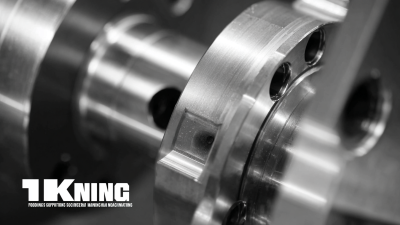
Finding Top Quality Suppliers for Best Precision CNC Machining Solutions
-
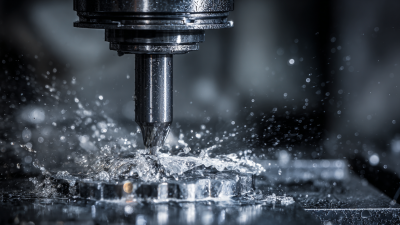
Maximizing Value: How Exceptional After-Sales Service and Low Repair Costs in Best Rapid CNC Machining Set You Apart
-
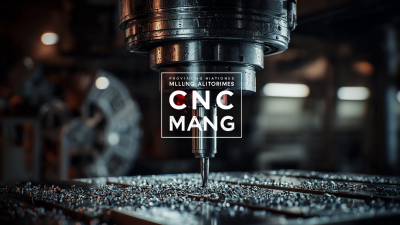
Exploring Innovative Alternatives to Best Milling Machine CNC for Global Manufacturers
-
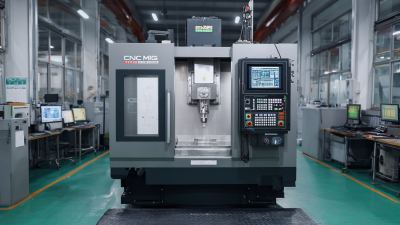
Discover China’s Leading CNC Metal Milling Machines: Global Sales Surge with Quality Assurance
-
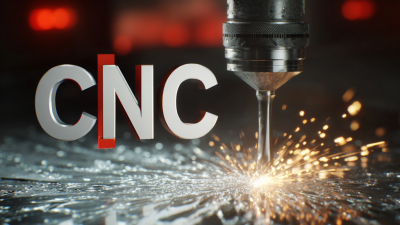
How to Choose the Best CNC Machine for Your Business Needs
-
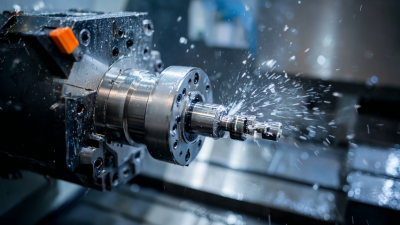
Navigating the Future: How Best Rapid CNC Machining Will Shape Industry 2025 Trends